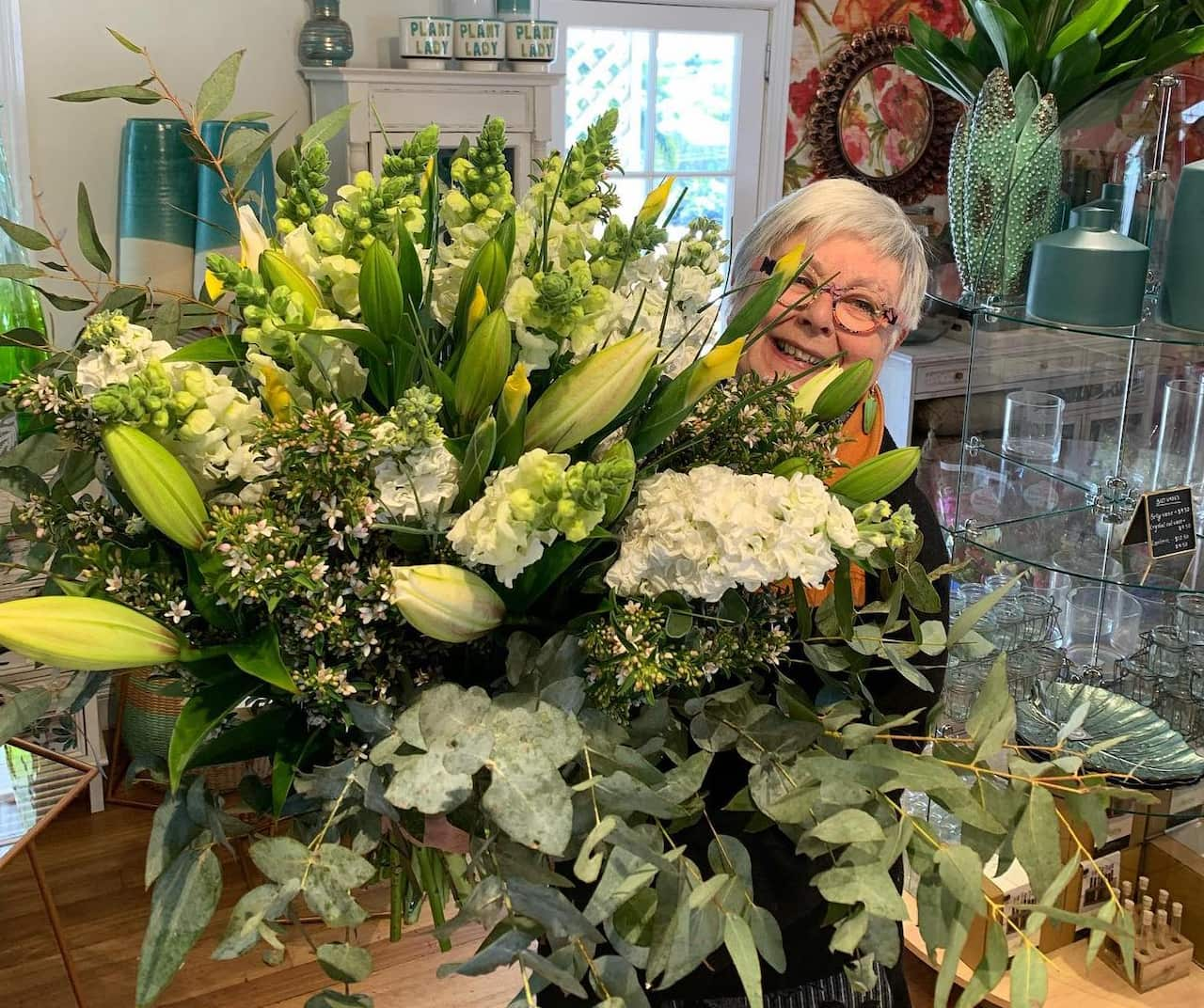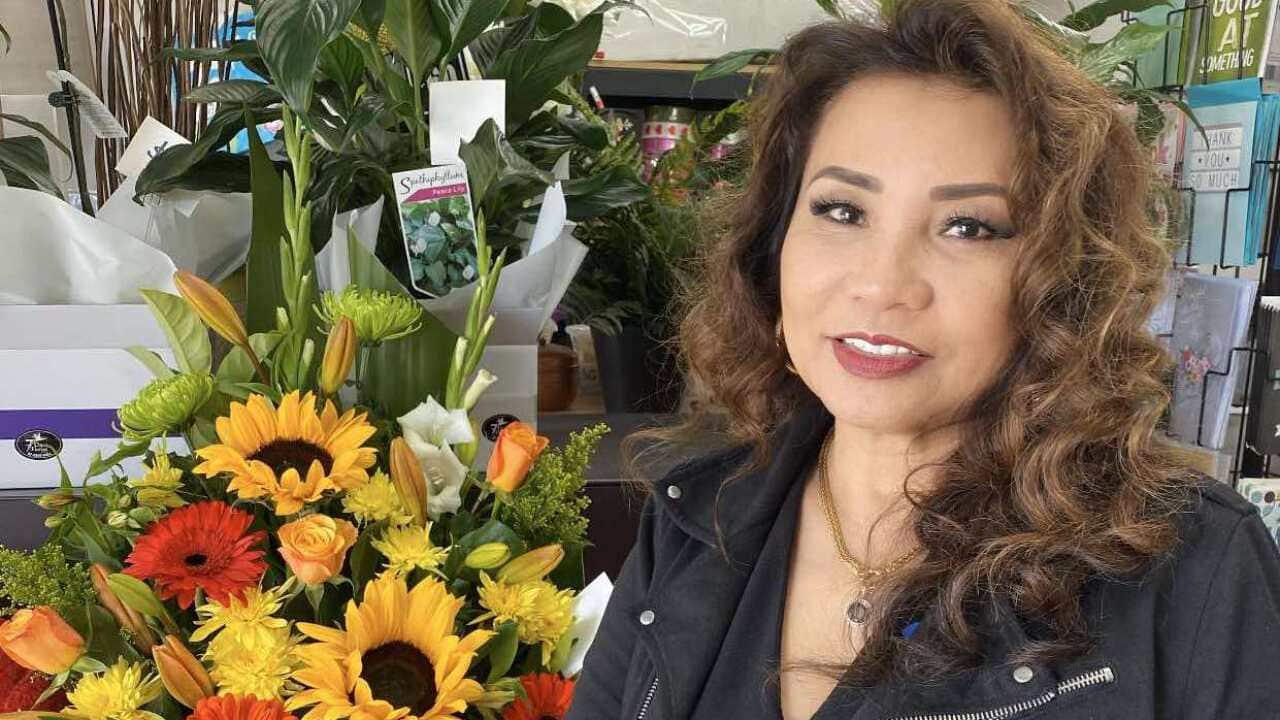Born in the Netherlands, Anja Seebus grew up in a culture in which flowers were always on the table.
But when she opened her floristry business in Brisbane in 1985, she was surprised to learn it was not common in Australia to buy flowers for the house and that they were only thought of for special occasions.
“My grandfather was a head gardener at a castle in the Netherlands. Our whole house was decked out with flowers every week,” she told SBS News. “I beg to differ that flowers are a luxury, they are an essential item. Flowers keep us connected. They are a lot more important than what people realise.” Contrary to early forecasts that Australians would cut spending on discretionary items because of a deteriorating economy, Queensland florists have reported an increase in flower sales since the COVID-19 pandemic started.
Contrary to early forecasts that Australians would cut spending on discretionary items because of a deteriorating economy, Queensland florists have reported an increase in flower sales since the COVID-19 pandemic started.

Anja Seebus runs Flowers of the World in Brisbane. Source: Celeste Macintosh/SBS News
Ms Seebus said she has seen a massive shift in the local flower market as more people now regularly purchase flowers for themselves.
“What we're seeing now is that people do buy flowers for home decor every week or they take a subscription,” she said. “We see a lot more orders online, particularly when the aged care centres closed off.” Despite having to cancel all her wedding bookings this year, Brisbane florist and events stylist Imelda Reyes Kateb said she luckily avoided having to close her business, even at the height of the pandemic. Instead, she has seen its biggest annual sales since she began trading in 1997.
Despite having to cancel all her wedding bookings this year, Brisbane florist and events stylist Imelda Reyes Kateb said she luckily avoided having to close her business, even at the height of the pandemic. Instead, she has seen its biggest annual sales since she began trading in 1997.

Imelda Reyes Kateb runs Brisbane Flowers Weddings in Chermside. Source: Supplied
“It was supposed to be a very bad financial situation for us but surprisingly, we are one of the ‘good news’ [to come out of this] pandemic," she said. "Why? Because a lot of people are buying flowers for themselves to make them happy. A lot of husbands place orders online because they want to cheer up the whole family.”
Flowers and mental health
Originally from the Philippines, Mrs Kateb moved to Brisbane in 1990 with her husband, Sam, after living in Canada and the United States. Five years later they invested in a floristry business after much convincing from her husband, who had helped a florist friend at a Valentine’s Day event.
"My husband came home that day and said, ‘I have found the right business for us. This is a happy business; it's a flower shop’," she said. Psychologist Lisa Flowers of Evoke Psychology in Queensland said people “associate flowers with positive experiences and celebrations”.
Psychologist Lisa Flowers of Evoke Psychology in Queensland said people “associate flowers with positive experiences and celebrations”.

Anja Seebus says flowers in the home were commonplace growing up in the Netherlands. Source: Supplied
“Often, when we give or receive flowers, we experience a connection with other people, and that connectedness is really integral to good wellbeing and good mental health.”
Ms Flowers highlighted the impact the pandemic has had on mental health and said people naturally turn to flowers during times of crisis.
Financial services company Rabobank has estimated the COVID-19 crisis has already cost the global floriculture industry at least AU$1.5 billion in losses.
In the Australian winter months, more than 80 per cent of flowers sold locally are reportedly imported from Kenya, Colombia, Malaysia, Vietnam and Thailand, despite cut flowers being grown all year round across the country.
Mrs Kateb said she is increasingly sourcing her flowers locally to meet demand, while Ms Seebus said she has primarily sourced locally-grown flowers, even pre-pandemic.
“Everyone seemed to be gravitating towards what is in season and the excitement of what you've got at the moment,” Ms Seebus said.
Homegrown blooms
Tasmanian peony farmer Jo Wright is looking forward to another harvest this coming November.
“Our peonies are just poking their little pink noses through the soil,” she said. Together with her husband Caleb, they grow varieties such as Florence Nichols and Sarah Bernhardt at their farm and business, Misty Mountain Peonies, in Lilydale.
Together with her husband Caleb, they grow varieties such as Florence Nichols and Sarah Bernhardt at their farm and business, Misty Mountain Peonies, in Lilydale.

Tasmanian peony farmers Jo and Caleb Wright. Source: Misty Mountain Peonies
Over the years, they have been shipping fewer of their flowers interstate as their harvests immediately sell out in the nearby city of Launceston, but Mrs Wright said they are quite happy to stay small and local.
“We don’t make a fortune from them, but we like making people happy. Even though they're an awful lot of work, once we harvest them and watch them open, I just fall in love with them all over again. Which is why we do it again next year.” Should restrictions on gatherings continue until next winter, both Ms Seebus and Mrs Kateb say they’ll cope if smaller events become the new normal.
Should restrictions on gatherings continue until next winter, both Ms Seebus and Mrs Kateb say they’ll cope if smaller events become the new normal.

‘We don’t make a fortune from them, but we like making people happy.’ Source: Misty Mountain Peonies
“I doubt whether it ever will come back the way it [was],” Ms Seebus said.
She is optimistic that people will appreciate the value of flowers more than ever now to ”keep connected to what matters” after battling a tough year, and they'll enjoy being “taken through the seasons” with what is locally available.
“I think that's a trend to stay.”
Celeste Macintosh is a freelance journalist based in Brisbane









